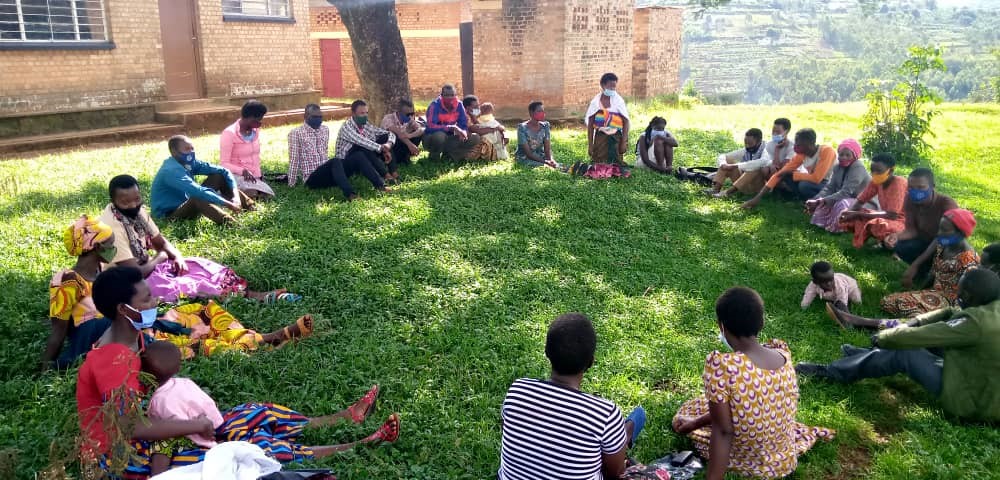
This is a guest post from Rebecca Tinsley, Founder of our partner, Network for Africa.
Working from home during the pandemic has been a challenge for many people with children, or well-meaning friends and partners who don’t recognise that a closed door is a boundary. Some of us find it hard to concentrate when there are distractions, large or small.
The same applies for the Rwandan genocide survivors who attend our regular group counselling meetings*. The sessions last a couple of hours, twice a month, and they are serious, emotionally-charged occasions when survivors listen with respect and empathy to each other’s testimonies. There may be stretches when people struggle with their memories in uncomfortable silence, trying to find the courage to give voice to their experiences.
Group Counselling for Adult Survivors
At these group sessions, it can be distracting to have toddlers running around while their mothers try to listen and contribute. Survivors often travel many miles to join these counselling sessions. They praise them for providing “a new family” and a network for supportive friends, where previously they felt isolated or even stigmatised as orphans. They find their confidence improves and they learn techniques to manage their post-traumatic stress and move on with their lives.
A Need for Childcare During Group Counselling Meetings
Half the genocide orphans attending our group meetings have young children of their own. All over the world, parents can generally depend on extended family to keep an eye on the youngsters while they attend an appointment, but our Rwandan orphans have few relatives who survived the 1994 genocide. For this reason, we are seeking your support to provide childcare during our counselling sessions.
Taking the Pledge
Each Christmas, the Big Give Challenge doubles the donations we receive during December, so long as we manage to get pledges from our supporters well in advance. Even though we will be appealing for donations in December, we have until the end of August to raise £6,000 in pledges. The pledges will then be matched by a Big Give Champion giving Network for Africa a total of £12,000 for the match-giving campaign.
If you can pledge £1,000, £2,000 or £3,000, we ask that you take the following two steps:
- email us at information@network4africa.org
- Complete the online pledge form on the Big Give website: https://www.thebiggive.org.uk/s/pledge?campaignId=a056900001tzDzXAAU).
Please note that you won’t be asked for the money until mid-December of this year, but the confirmation that the pledge will be paid is needed by 27 August 2021.
We are grateful to everyone who can make a pledge to this important campaign. The Big Give is a great way of raising funds for our mental health project in Rwanda, and we appreciate your help with this.
A Return to In-Person Counselling Sessions
* In case you are wondering how we could hold group counselling sessions during a pandemic… In March 2021, Nationwide movement restrictions were lifted and group counselling in our Rwandan project resumed. For most of the pandemic lockdown, our peer support counsellors carried out thousands of phone consultations with genocide survivors who are suffering from repeated flashbacks, nightmares and insomnia. Our counsellors were given four days of special training in how to adapt their skills to working over the phone, and we thank them for their hard work and commitment.
